Select Language
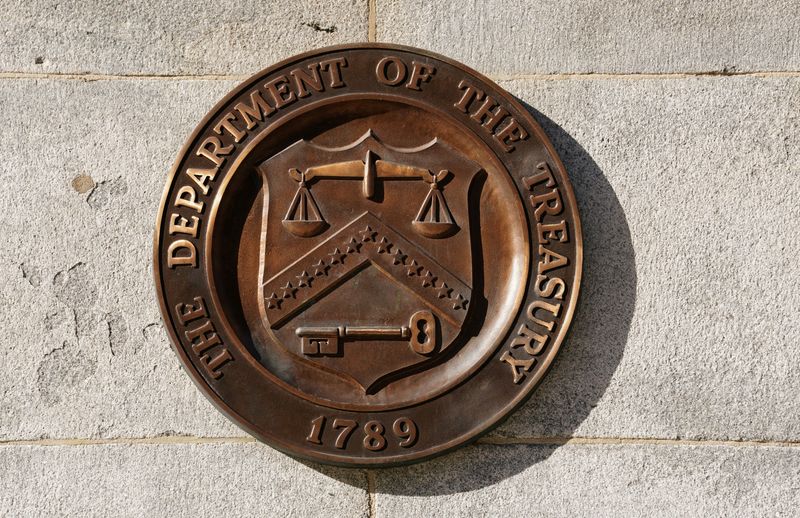
NEW YORK (Reuters) - The U.S. Treasury Department on Wednesday said regulators should weigh new guidance or rules aimed at curbing financial risks from nonfungible tokens, or NFTs, a type of digital asset it deemed highly prone to fraud.
WHY IT'S IMPORTANT
NFTs, blockchain-based images, videos, music or text, surged in popularity during the coronavirus pandemic. The assets are highly susceptible to scammers and can be used to launder illicit funds, the Treasury Department said in a report published on Wednesday.
Still, other sectors - including other digital assets - pose greater risks for illicit finance, so regulating NFTs should not supersede other priorities, it said.
THE CONTEXT
U.S. regulators have been looking to better police markets for digital assets.
KEY QUOTE
"The NFT market is particularly vulnerable to fraud and scams," the Treasury Department said.
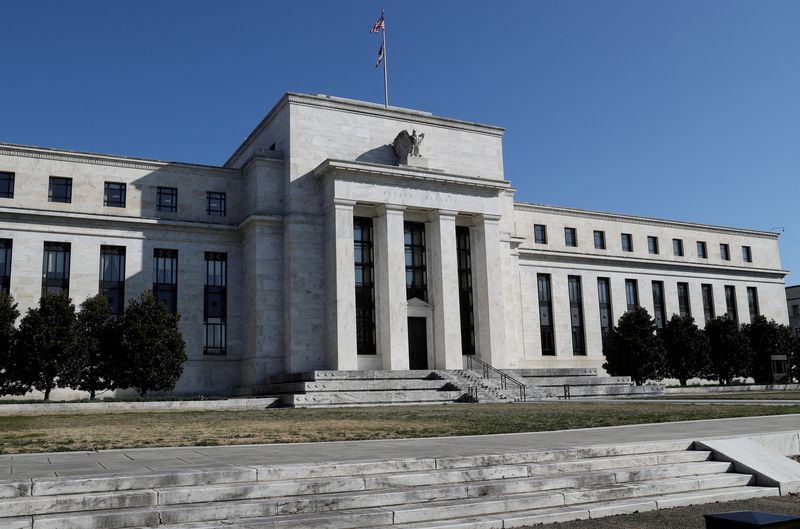
By Lindsay (NYSE:LNN) Dunsmuir
(Reuters) -U.S. economic activity continued to expand from early April through mid-May but firms grew more downbeat about the future amid weakening consumer demand while inflation continued to increase at a modest pace, a U.S. Federal Reserve survey showed on Wednesday, as central bankers mull how long they will need to keep interest rates at current levels.
The U.S. central bank's latest temperature check on the health of the economy also showed that the jobs market continues to gradually cool back down toward more normalized levels.
The survey, released roughly every six weeks, comes as policymakers remain uncertain on when to start a rate-cutting cycle after holding interest rates in the range of 5.25% to 5.50% for the past 10 months. They are keenly watching trends in activity, jobs and pricing pressures in order to make their decision.
"National economic activity continued to expand...however, conditions varied across industries and districts," the Fed said in its survey, known as the "Beige Book," which polled business contacts across the central bank's 12 districts through May 20. "Overall outlooks grew somewhat more pessimistic amid reports of rising uncertainty and greater downside risk."
Waning consumer demand was an ongoing concern for many firms, the Dallas Fed noted, while the continued conflict in the Middle East and further geopolitical tensions across the world were also cited as downside risks.
Most Fed districts reported slight or modest growth in economic activity, while two noted no change, the survey said. In particular, retail spending was described as flat to up slightly, echoing recent data that indicated consumers are pulling back on spending.
The Fed's benchmark interest rate is set to remain unchanged at the next policy meeting on June 11-12 and Fed officials, while all but ruling out another rate hike, have indicated they need consistent encouraging inflation data over a number of months before lowering borrowing costs after being stung by bigger-than expected price increases the first three months of the year.
While that worrying trend seems to have reversed in April inflation currently remains, by the Fed's preferred measure, almost a percentage point higher than its 2% target rate. The latest reading of the Fed's key inflation gauge is scheduled for release on Friday.
MORE SENSITIVE CONSUMERS
Contacts in most Fed districts noted consumers were pushing back against additional price increases. One large clothing retailer told the Boston Fed it planned to implement "modest price reductions on selected items in early fall in a bid to boost sales."
However, there are also some signs inflation pressures may be reaccelerating again. "Many districts observed a continued increase in input costs," the report said. A separate survey earlier this month showed manufacturers in May reported a surge in prices for a range of inputs, suggesting that goods inflation could pick up in the months ahead.
"Consumers are becoming more price-conscious, likely putting pressure on profit margins. We should expect more discounts and incentives as some consumers struggle with persistently high prices," said Jeffrey Roach, chief economist at LPL Financial (NASDAQ:LPLA) following the release of the report.
For Fed officials there was welcome news on the labor market, with employment described as rising at a slight pace overall, better labor availability across a majority of Fed districts and less employee turnover.
For example, a winery in central Minnesota said that it received "a lot more applications for part-time (and) seasonal workers this year, which is very encouraging," the Minneapolis Fed reported.
Wage growth continued to grow mostly at a moderate pace but several Fed districts reported firms telling them it was now at pre-pandemic historical averages or was normalizing toward those rates.
U.S. job gains were the fewest in six months in April and the increase in annual wages fell below 4.0% for the first time in nearly three years, although the labor market remains fairly tight.
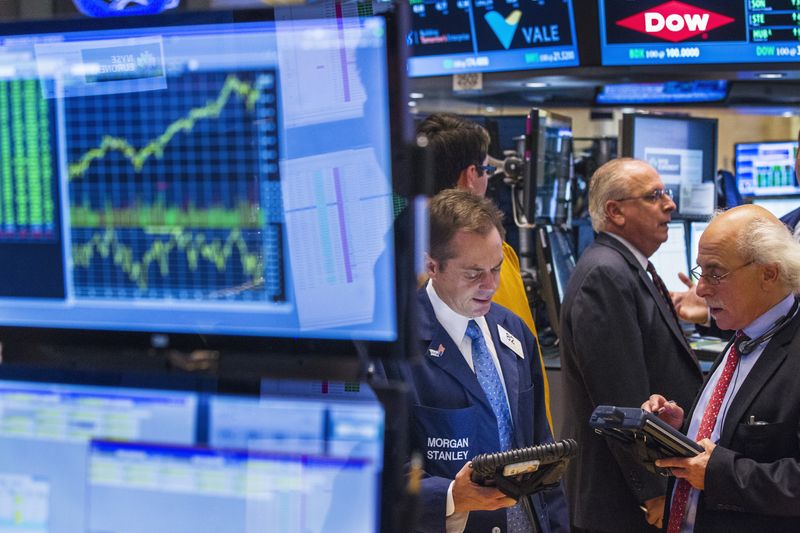
Investing.com -- U.S. futures point lower following a mixed session on Wall Street on Tuesday, with traders keeping a close eye on upcoming inflation data later this week. Salesforce (NYSE:CRM)'s Data Cloud unit is set to be in the spotlight when the business software company reports its latest quarterly results after the bell, while American Airlines (NASDAQ:AAL) cuts its outlook for the current three-month period. Elsewhere, BHP requests an extension to a looming deadline facing its negotiations over a multi-billion pound takeover of rival Anglo American (JO:AGLJ).
1. Futures lower
U.S. stock futures edged down on Wednesday, as investors looked ahead to key inflation data later this week that could influence how the Federal Reserve approaches potential interest rate cuts in 2024.
By 03:38 ET (07:38 GMT), the S&P 500 futures contract had shed 21 points or 0.4%, Nasdaq 100 futures had dipped by 70 points or 0.4%, and Dow futures had dropped by 168 points or 0.4%.
The tech-heavy Nasdaq Composite closed higher in the prior session thanks in part to a jump in shares in artificial intelligence chipmaker Nvidia (NASDAQ:NVDA). A closely-watched monitor of semiconductors added 1.9%, boosting the benchmark S&P 500. The blue-chip Dow Jones Industrial Average dipped, weighed down by an uptick in U.S. Treasury yields.
Traders are awaiting the release of the monthly personal consumption expenditures price index on Friday. The figure is widely considered to be the Fed's preferred gauge of inflation, meaning it could factor into how policymakers regard the trajectory of price gains. Signs of sticky inflation have led several officials to suggest in recent days that they would like to see more evidence of cooling prices before starting to bring rates down from more than two-decade highs.
Investing.com -- U.S. futures point lower following a mixed session on Wall Street on Tuesday, with traders keeping a close eye on upcoming inflation data later this week. Salesforce (NYSE:CRM)'s Data Cloud unit is set to be in the spotlight when the business software company reports its latest quarterly results after the bell, while American Airlines (NASDAQ:AAL) cuts its outlook for the current three-month period. Elsewhere, BHP requests an extension to a looming deadline facing its negotiations over a multi-billion pound takeover of rival Anglo American (JO:AGLJ).
1. Futures lower
U.S. stock futures edged down on Wednesday, as investors looked ahead to key inflation data later this week that could influence how the Federal Reserve approaches potential interest rate cuts in 2024.
By 03:38 ET (07:38 GMT), the S&P 500 futures contract had shed 21 points or 0.4%, Nasdaq 100 futures had dipped by 70 points or 0.4%, and Dow futures had dropped by 168 points or 0.4%.
The tech-heavy Nasdaq Composite closed higher in the prior session thanks in part to a jump in shares in artificial intelligence chipmaker Nvidia (NASDAQ:NVDA). A closely-watched monitor of semiconductors added 1.9%, boosting the benchmark S&P 500. The blue-chip Dow Jones Industrial Average dipped, weighed down by an uptick in U.S. Treasury yields.
Traders are awaiting the release of the monthly personal consumption expenditures price index on Friday. The figure is widely considered to be the Fed's preferred gauge of inflation, meaning it could factor into how policymakers regard the trajectory of price gains. Signs of sticky inflation have led several officials to suggest in recent days that they would like to see more evidence of cooling prices before starting to bring rates down from more than two-decade highs.
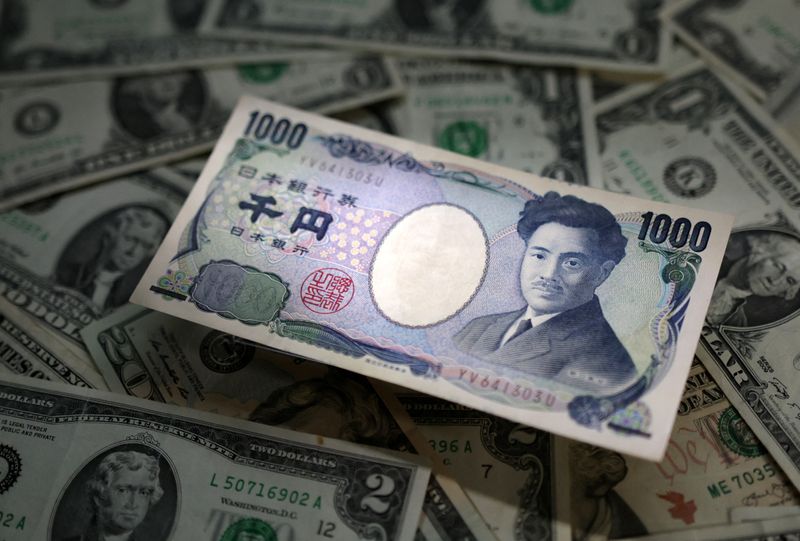
By Ankur Banerjee
SINGAPORE (Reuters) -The dollar was bolstered on Wednesday by rising expectations the Federal Reserve is unlikely to cut rates until later this year ahead of crucial inflation readings this week, while the yen drifted to its weakest in four weeks.
The dollar was also lifted by rising Treasury yields after a lacklustre debt auction for sales of two-year and five-year notes that raised doubts about demand for U.S. government debt.
The euro was 0.09% lower at $1.0848 but on course for a 1.7% gain for the month, its first month of gains in 2024. Sterling was last at $1.27525, on course for a 2% gain in May.
Data on Tuesday showed U.S. consumer confidence unexpectedly improved in May after deteriorating for three straight months, but worries about inflation persisted and many households expected higher interest rates over the next year.
The mixed survey comes as markets contemplate the Fed's next move, with traders pricing in 34 basis points of cuts this year compared with 150 bps of easing priced in at the start of 2024.
A rate cut in September is now priced in at 44%, the CME FedWatch tool showed, as still sticky inflation along with pockets of weakness in the world's largest economy amid a strong labour market keep shifting expectations around U.S. rates.
Market focus this week will be on a slew of inflation reports, with German inflation data due on Wednesday and the wider euro zone's reading on Friday.
The main event though will be when the U.S. core personal consumption expenditures (PCE) price index report - the Federal Reserve's preferred measure of inflation - is released on Friday. Expectations are for it to hold steady on a monthly basis.
Against a basket of currencies, the dollar index was little changed at 104.7, inching away from the near two-week low of 104.33 it touched on Tuesday. The index is down 1.5% in May.
"FX markets continue to mark time in anticipation of core PCE data later this week," said Christopher Wong, currency strategist at OCBC. "We should continue to see 104-105 holding up until the next catalyst comes along."
The Australian dollar was little changed at $0.66485 after Australian consumer price inflation unexpectedly rose to a five-month high in April, adding to risks the next move in interest rates might be upward.
"Australia's faster-than-expected April inflation again raises concerns about the final stretch of global inflation path after several months of disinflation," said Charu Chanana, head of currency strategy at Saxo in Singapore.
Meanwhile, the yen touched a four-week low of 157.41 per dollar early on Wednesday as the currency inches back to levels that led to bouts of suspected interventions from Tokyo at the end of April and early May. It was last at 157.255.
The yen hit a 34-year low of 160.245 per dollar on April 29, resulting in at least two suspected interventions that week, with Japanese authorities estimated to have spent more than 9 trillion yen ($57.21 billion) to prop up the frail currency.
"Perhaps Japanese officials sound out verbal warnings again but without tangible action it's likely dollar/yen marches towards the levels seen in late April," Prashant Newnaha, a senior Asia-Pacific rates strategist at TD Securities.
The yen was also broadly weaker against other currencies. The pound rose 0.13% to 200.68 yen, the strongest since August 2008, earlier in the session while the euro touched a one-month high of 170.795 yen.
The Bank of Japan may raise interest rates if sharp falls in the yen boost inflation or the public's perception of future prices move more than expected, board member Seiji Adachi said on Wednesday.
The yen, which is sensitive to Treasury yields, is down 10% for the year against the dollar but may yet scrape a monthly gain in May.
In Asian hours, the benchmark U.S. 10-year yield rose to 4.568%, the highest since May 3. [US/]
($1 = 157.3100 yen)

BEIJING (Reuters) - China's economy is set to grow 5% this year, after a "strong" first quarter, the International Monetary Fund said on Wednesday, upgrading its earlier forecast of 4.6% expansion though it expects slower growth in the years ahead.
The IMF said it had revised up both its 2024 and 2025 GDP targets by 0.4 percentage points but warned that growth in China would slow to 3.3% by 2029 due to an ageing population and slower expansion in productivity.
"China's economic growth is projected to remain resilient at 5% in 2024 and slow to 4.5% in 2025," the global lender said in a statement wrapping up its annual assessment of the world's second-biggest economy for 2024. "Strong Q1 GDP data and recent policy measures" drove the upgrades, it added.
China's economy grew at a faster than expected 5.3% pace year-on-year in the first quarter, comfortably above analysts' forecast for a 4.6% gain in a Reuters poll and up from a 5.2% expansion in the previous quarter.
A string of recent economic indicators for April including factory output, trade and consumer prices suggest the $18.6 trillion economy has successfully navigated some near-term downside risks, but China observers say the jury is still out on whether the bounce is sustainable.
Domestic consumption remains soft and much of that is linked to fragile confidence amid a protracted property sector crisis that is widely seen as the single biggest stumbling block to a full-blown economic recovery.
Retail sales in April, for instance, grew at their slowest pace since December 2022, when Beijing's strict zero-COVID curbs were in place, while new home prices fell at their fastest rate in nine years.
The IMF said it welcomed steps announced by policymakers earlier this month to stabilise China's beleaguered property sector and said that steps "necessary for steering the sector towards a more sustainable path should continue."

By Devayani Sathyan
BENGALURU (Reuters) - Australian home price rises will outpace overall inflation over the next couple of years, despite fading expectations of interest rate cuts, according to a Reuters poll of analysts who said the supply of affordable homes will keep falling short of demand.
Robust demand for housing and the failure of homebuilders to adequately increase supply has turned Australia into one of the world's most expensive housing markets, severely limiting options for many new homebuyers who dream of owning a property.
After surging more than 25% during the pandemic, prices fully recovered those losses by the end of 2023, rising 8.1% over the year, in a quick turnaround that came despite the Reserve Bank of Australia (RBA) jacking up interest rates to a 12-year high of 4.35% in late 2023.
Economists in a separate Reuters poll do not expect the RBA to cut rates until the fourth quarter of this year.
The Reuters survey of 14 real estate analysts taken between May 10 and 28 expected home prices to rise 5.3% this year, a consensus view largely unchanged since August 2023. Analysts predicted a 5.0% rise in 2025 and 2026.
Housing markets rarely rise that steadily and consistently, especially when interest rates are changing. Yet supported by strong economic fundamentals, relatively low unemployment and a high influx of immigrants, Australia's housing market has nearly always outpaced analysts' estimates.
"Supply-demand imbalance has obviously taken the upper hand versus the capacity-to-pay issue. So we continue to see a very moderate positive growth for Australian house prices," said My Bui, economist at AMP (OTC:AMLTF).
"We've under-built in the past two or three years already. So even if the supply picks up from here, we'll still have a little bit of under-supply that we need to catch up (from) in the past two years or so."
SHORT OF DEMAND
Asked about the supply of affordable homes over the coming two to three years, all eight who answered said it would be short of demand. Four of those eight said it would be far short.
Supply constraints, high mortgage rates and already- elevated home prices mean affordability for first-time buyers in the near term will worsen.
The average asking price of an Australian property was A$779,817 ($520,293.90) in April, according to CoreLogic, nearly eight times the average annual income.
It is close to 12 times in Sydney, where prices were forecast to rise 4.5% this year and 5.5% next.
"Unfortunately it's very hard for first-time buyers because prices have gone up quicker than they can save a deposit and quicker than they can get into the market," said Michael Yardney at Metropole. "They are suffering because the cost of living has gone up (and) the rents are sky-rocketing.
"The problem is the rich are getting richer. Those who own real estate, the value of their assets has gone up, in many cases double-digit growth over the last year. So, therefore, the house price has gone up considerably, but many people's average income hasn't," Yardney added.
In a bid to help Australians overcome the housing crisis, the Anthony Albanese-led government has pledged to build 1.2 million homes by 2030.
Analysts unanimously agreed the government should be more involved in improving affordability. "The government's job is to provide social and public housing for Australia's poor and disenfranchised people. It has not been doing that," Yardney said.
(For other stories from the Reuters quarterly housing market polls:)
($1 = 1.5020 Australian dollars)
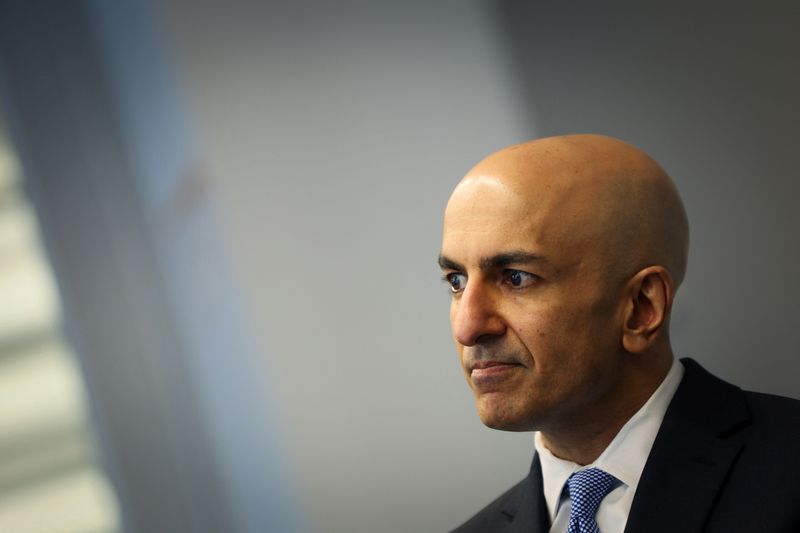
Neel Kashkari, President of the Federal Reserve Bank of Minneapolis, said Tuesday that the US central bank's policy stance remains restrictive, however, he added that policymakers have not completely dismissed the possibility of further interest-rate increases.
“I don’t think anybody has totally taken rate increases off the table,” Kashkari stated during an event in London. “I think the odds of us raising rates are quite low, but I don’t want to take anything off the table.”
Kashkari echoed the remarks he shared in an interview with CNBC earlier in the day, where he said that the Fed should wait for more substantial progress on inflation before considering interest rate cuts.
When asked about the conditions for rate cuts in 2024, Kashkari said, “Many more months of positive inflation data, I think, to give me confidence that it’s appropriate to dial back.”
The Fed official also didn't rule out further rate hikes if inflation persists, saying that the central bank shouldn’t rule anything out at this point.
U.S. inflation increased by 0.3% in April, slightly less than expected, offering some relief to policymakers, but it remained 3.4% higher compared to the previous year.
Kashkari remains confident that the Fed will eventually reach its 2% inflation target but stressed the importance of patience.
“I’m not seeing the need to hurry and do rate cuts, I think we should take our time and get it right,” he told CNBC.
He also mentioned that while the central bank might consider adjusting its target rate in the future, it was premature to “move the goal posts” at this time.
Earlier this month, Kashkari suggested that the Fed might need to keep interest rates steady for "an extended period"—potentially all year—to achieve its inflation goal.
Recently, there has been a growing divergence among major central banks on interest rate policies.
The Fed, which has historically been quick to adjust rates, is becoming more cautious amid persistent inflation.
In contrast, the European Central Bank is expected to lower rates ahead of the Fed, with key ECB officials supporting a June cut. Similarly, the Bank of England is anticipated to reduce rates this summer.
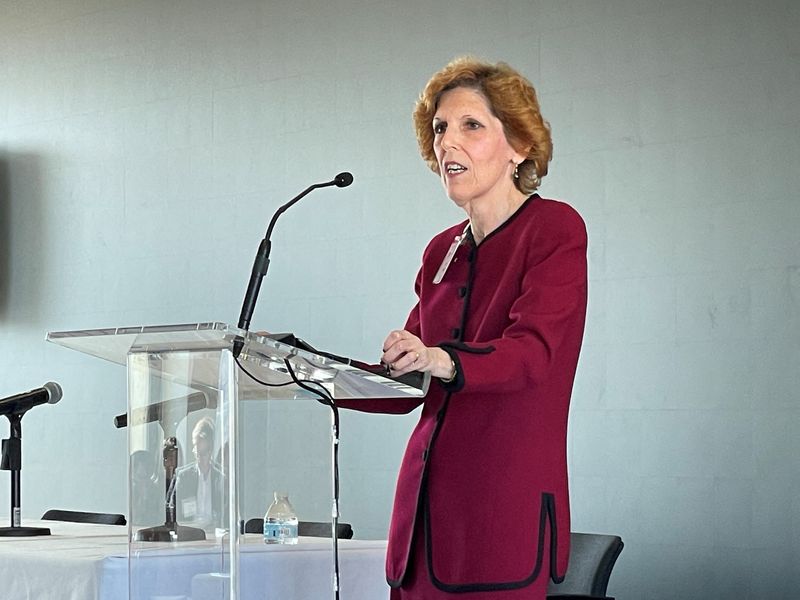
(Reuters) - Federal Reserve policy statements would benefit from somewhat lengthier passages than currently employed to describe assessments of economic developments, how that influences the central bank's outlook and the risks to that outlook, Cleveland Fed President Loretta Mester said on Tuesday.
"While simpler is often seen as a virtue, it can also be a detriment, since policymaking has to be done in an uncertain world, one in which the economy is constantly being buffeted by shocks that can lead economic conditions to evolve differently than anticipated," Mester said in remarks prepared for delivery to a Bank of Japan conference in Tokyo. "With short statements, each word takes on added significance."
Fed policy statements have become shorter under the leadership of Chair Jerome Powell, and Mester - who is retiring next month - said that is not always the best choice. "Short statements suffer from what I call a 'Hotel California' problem: We are reluctant to change particular words because of the possible signal that doing so may send," she said, referencing the hit 1970s song by the Eagles. "Words 'check in' but it is hard to get them to 'check out' even when it is desirable.
"In my view, it would be preferable for policymakers to take control of the narrative by using more words to describe the current assessment of economic developments, how they have influenced the outlook, and the risks to that outlook," she said.
Another improvement to Fed communications would be the introduction of an "anonymized matrix" of economic and policy projections alongside the Summary of Economic Projections, or SEP, published each quarter. The SEP most notably includes a "dot plot" showing the range and clustering of policymakers' projections for the appropriate level of interest rates.
By publishing such a matrix "market participants can see the linkage between each participant’s outlook and his or her view of appropriate monetary policy associated with that outlook," Mester said. "Currently, the variables in the SEP are not linked across participants, and the median paths provided don’t necessarily represent a coherent forecast. For example, there is no guarantee that someone projecting the median inflation path would necessarily be projecting the median output path."
The recommendations from Mester - which she dubbed "use your words" and "connect the dots" - come ahead of a planned monetary policy framework review that Powell has said will start later this year and likely stretch into 2025. Mester expects the Fed will consider its communications strategy as part of the review.

By Sherin Elizabeth Varghese
(Reuters) - Gold prices held steady on Tuesday as the dollar eased, while investors looked forward to key U.S. inflation data that could offer clues on how soon the Federal Reserve can cut interest rates.
Spot gold was flat at $2,350.85 per ounce, as of 0350 GMT, after rising about 1% in the previous session.
U.S. gold futures rose 0.8% to $2,352.00.
"A very strong dollar picture supported by a change in the U.S. monetary policy stance where the Fed starts looking for evidence to kick start interest rate hikes instead of easing could be a major risk as we could see a further corrective move in spot gold," said Kelvin Wong, a senior market analyst for Asia Pacific at OANDA. [USD/]
However, in the short term, spot gold is still more skewed towards the positive side rather than the negative side and $2,310 is a key short-term support for this week, Wong added.
The core personal consumption expenditures price index (PCE), the Fed's preferred inflation measure, is due on Friday.
Fed meeting minutes released last week showed that the policy response, for now, would involve maintaining the benchmark policy rate at its current level but also reflected discussions of possible further hikes.
Traders' bets indicated rising scepticism that the U.S. central bank will lower rates more than once in 2024, currently pricing in about a 62% chance of a rate cut by November according to the CME FedWatch Tool.
Bullion is known as an inflation hedge, but higher rates increase the opportunity cost of holding non-yielding gold.
Vietnam's central bank will stop auctioning gold in the domestic market and launch a new measure to stabilise domestic prices, it said on Monday.
Spot silver rose 0.2% to $31.73, platinum was up 0.4% to $1,058.50 and palladium gained 0.2% to $991.18.

By Nivedita Balu and Fergal Smith
TORONTO (Reuters) - Canada, Mexico and Argentina on Monday started to settle securities trades faster, halving settlement time to one day, in a move designed to reduce counterparty risk and improve market liquidity.
Settlement is the final stage of a trade, when buyers get their securities delivered and sellers are paid.
Market participants and regulators in the United States are paying close attention to the implementation of the so-called T+1 in Canada, Mexico and Argentina because Wall Street will shift to one-day settlement on Tuesday for equities, corporate and municipal bonds and other securities.
As global markets are highly integrated, any hiccups there could signalize potential issues for the United States too.
"Everything is bright green at this point in time. There are no issues and everybody is extremely optimistic," said Keith Evans, executive director of the Canadian Capital Markets Association, a federally incorporated industry organization.
Volumes will likely be up to 25% lighter than normal due to the U.S. holiday on Monday, making it "somewhat of an advantage" for Canada, Evans added.
In Argentina, Gonzalo Pascual Merlo, chief executive of local exchange operator BYMA, told Reuters that the change would further strengthen the country's capital markets.
"Implementing this measure brings clear benefits for the whole ecosystem, from liquidity providers to investors and other participants," he said.
A BYMA spokesman added that implementing the quicker settlement would "strengthen the friction-less arbitrage with other global markets and reduce counterparty risk in normal settlement, increasing security for capital markets participants."
Although regulators have been discussing the implementation of one-day settlement for a long time, it gained more traction after the 2021 trading frenzy around the "meme stock" GameStop (NYSE:GME) highlighted the need to reduce counterparty risk and improve capital efficiency and liquidity in securities transactions.
In China and India, the new standard is already in place, while Britain and the European Union plan to shift in the coming years.
The more countries or markets adopt T+1, the more efficient the faster settlement it will be for global investors.
Currency trades funding securities transactions currently settle in two days. Because of issues like this, regulators and market participants expect a temporary increase in trade fails. Research firm ValueExchange found in a survey that market participants expect the trade fail rate to increase to 4.1% after T+1 implementation from 2.9%.
"The next few days promise to be challenging," said Nawan Butt, head of capital markets at Purpose Investments in Toronto. "We have to spend the time to handhold all trades and make sure trade fail rates remain low as funding costs are quite high with the current interest rate backdrop."

